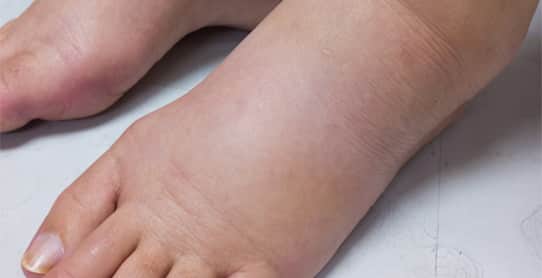Leg swelling is a symptom that should not be ignored, as it may indicate underlying health issues
Leg swelling, also known as edema, is a common condition that can affect absolutely anyone.
While occasional swelling may be harmless, persistent or sudden swelling could indicate underlying health issues.
If you are experiencing leg swelling, here are five conditions that might have caused it.
1. Lack of physical activity
One common reason for swollen legs is lack of physical activity. If you have been sitting or standing for a long time without movement, this can contribute to poor circulation and fluid retention, leading to leg swelling.
Aside from being in one position for a long time, fluid retention can also be caused by conditions such as kidney disease, heart failure, and liver disease which all impact the legs leading to swelling.
2. Venous insufficiency
Venous insufficiency refers to the inability of veins to adequately circulate blood back to the heart. When veins struggle to perform this function, blood may pool in the legs, resulting in swelling.
Varicose veins and deep vein thrombosis are examples of conditions associated with venous insufficiency.
3. Lymphatic issues
The lymphatic system plays an important role in maintaining fluid balance in the body. Any disruption in the lymphatic system, whether due to infection, surgery, or trauma, can lead to swelling in the legs.
Lymphedema is a specific condition where the lymphatic system is compromised.
4. Inflammation and infection
Inflammatory conditions such as arthritis can also contribute to leg swelling. In addition, localised infections, such as cellulitis, can cause inflammation, leading to swelling in the affected area.
5. Pregnancy
It is quite common to see pregnant women with swollen legs especially in the later stages of pregnancy. This is commonly attributed to increased pressure on blood vessels and the growing uterus affecting blood flow.
In conclusion, leg swelling is a symptom that should not be ignored, as it may indicate underlying health issues. Identifying the root cause is crucial for proper diagnosis and management.
Individuals experiencing persistent or severe leg swelling should seek medical attention to determine the appropriate course of action for their specific condition.













